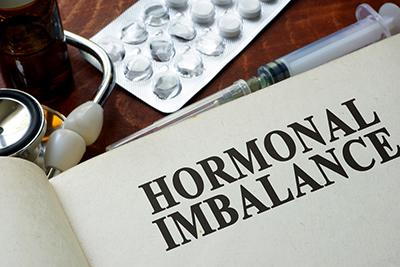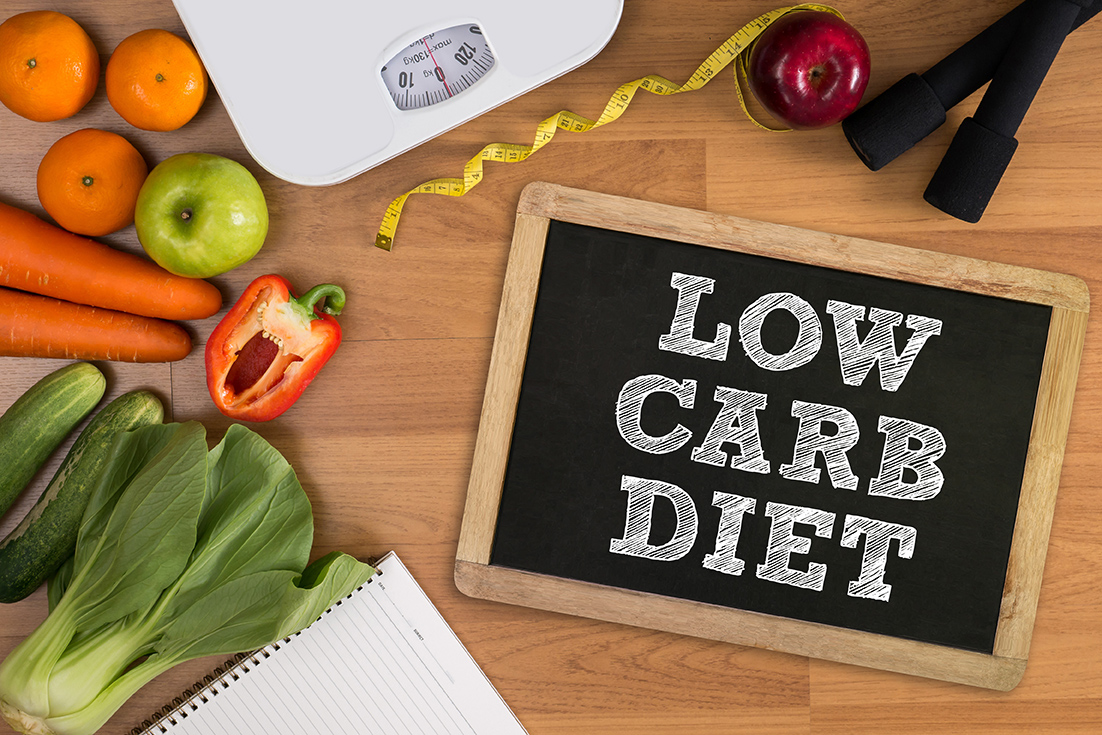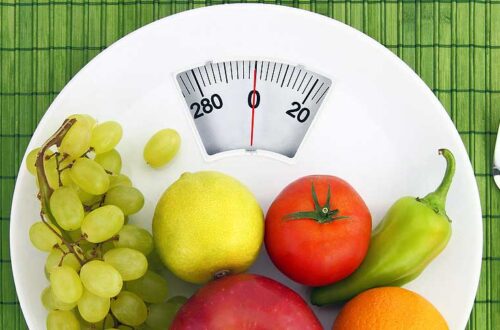How To Treat Hormonal Imbalance
This article is on how to treat hormonal imbalance and we all know that maintaining hormonal balance is crucial for overall well-being, as hormones serve as chemical messengers that regulate numerous bodily functions, including metabolism, mood, appetite, and weight.
Understanding how to treat hormonal imbalance naturally can help you optimize your health and improve your quality of life.
Your body naturally produces the necessary hormones in precise amounts to sustain various physiological functions.
However, several factors, such as a sedentary lifestyle, poor dietary habits, stress, and aging, can disrupt this delicate balance, leading to hormonal imbalances that may negatively affect both physical and mental health.
One effective way to support hormonal health is by adopting specific lifestyle practices, such as engaging in regular physical activity and consuming a nutrient-dense diet.
Exercise plays a fundamental role in balancing hormone levels by reducing insulin resistance, promoting the release of endorphins, and regulating cortisol, the stress hormone. Consistent physical activity, such as strength training, yoga, and aerobic exercises, can significantly contribute to hormonal equilibrium.
Dietary choices also have a profound impact on hormonal balance. Consuming a well-rounded diet rich in high-quality protein, healthy fats, fiber, and essential vitamins can support hormone production and function. Protein is essential for the synthesis of peptide hormones, which influence appetite and metabolism.
Fiber aids digestion and helps regulate insulin levels, reducing the risk of metabolic disorders. Additionally, incorporating antioxidant-rich foods, such as fruits and vegetables, can combat oxidative stress and promote overall hormonal harmony.
Beyond diet and exercise, other lifestyle modifications can aid in hormonal regulation. Managing stress effectively through practices like meditation, deep breathing exercises, and sufficient sleep can prevent excessive cortisol production, which is linked to weight gain, anxiety, and fatigue.
Prioritizing rest and establishing a consistent sleep schedule also contribute to optimal hormone function, particularly in the regulation of melatonin and growth hormones.
Furthermore, avoiding processed foods, refined sugars, and excessive caffeine intake can prevent unnecessary spikes in insulin and cortisol levels.
Instead, opting for whole, unprocessed foods, herbal teas, and staying hydrated can support endocrine health and enhance overall vitality.
Natural Remedies on How to Treat Hormonal Imbalance
The Importance of Protein in Your Diet
Maintaining a balanced diet is essential for overall health, especially when learning how to treat hormonal imbalance.
One of the most effective dietary strategies is ensuring you consume enough protein at every meal. Protein is not just a building block for muscles—it plays a vital role in hormone production and regulation.
Why Protein Matters for Hormonal Balance
Protein provides essential amino acids that your body cannot produce on its own. These amino acids are necessary for creating peptide hormones, which influence critical bodily functions, including:
- Growth and development
- Energy metabolism
- Appetite control
- Stress response
- Reproductive health
Research indicates that protein-rich meals help regulate hunger hormones. Specifically, protein reduces ghrelin (the hormone that stimulates appetite) while boosting hormones like GLP-1 and peptide YY, which promote feelings of fullness.
How Much Protein Should You Eat?
Experts recommend consuming at least 25–30 grams of protein per meal to support hormone health. Including high-quality protein sources in your diet can help stabilize hormones and improve metabolic function. Some excellent protein-rich foods include:
- Eggs – A complete protein with all essential amino acids
- Chicken breast – Lean and packed with muscle-supporting protein
- Lentils – A plant-based protein high in fiber and nutrients
- Fish – Rich in omega-3 fatty acids, which also support hormone production
By prioritizing protein intake, you can take a significant step toward balancing your hormones naturally. If you’re exploring how to treat hormonal imbalance, start by optimizing your meals with adequate protein to support your body’s hormonal harmony.
The Power of Regular Exercise
Balancing hormones isn’t just about diet—physical activity plays a crucial role as well. If you’re exploring how to treat hormonal imbalance, incorporating regular exercise into your routine is one of the most effective strategies.
Exercise doesn’t just strengthen your muscles and heart; it also enhances hormone function by improving circulation and increasing hormone receptor sensitivity.
This means your body becomes better at utilizing hormones efficiently, ensuring proper nutrient delivery and cellular communication.
How Exercise Supports Hormonal Health
One of the most significant benefits of exercise is its ability to regulate insulin levels and improve insulin sensitivity. Insulin is the hormone responsible for helping cells absorb glucose (sugar) from the bloodstream to use as energy.
However, insulin resistance—a condition where cells stop responding properly to insulin—can lead to serious health issues, including:
- Type 2 diabetes
- Obesity
- Heart disease
Research suggests that regular physical activity can reduce insulin resistance, even without significant weight loss. This means exercise helps balance blood sugar and hormones regardless of changes in body composition.
Best Types of Exercise for Hormone Balance
Different forms of exercise contribute to hormonal health in unique ways:
- High-Intensity Interval Training (HIIT) – Boosts metabolism and enhances insulin sensitivity.
- Strength Training – Builds muscle, which helps regulate hormones like insulin and growth hormone.
- Cardio (Aerobic Exercise) – Improves heart health and supports hormone circulation.
Even if intense workouts aren’t an option, low-impact activities like walking can still make a difference. Studies show that consistent, moderate exercise can elevate key hormones linked to energy, mood, and overall well-being.
Make Movement a Habit
If you’re working on how to treat hormonal imbalance, aim for at least 150 minutes of moderate exercise per week (like brisk walking) or 75 minutes of vigorous activity (such as cycling or running). Strength training 2-3 times per week further supports metabolic and hormonal health.
By staying active, you’re not just improving fitness—you’re also helping your hormones function optimally. Would you like additional tips on lifestyle habits that support hormone balance?
The Role of Maintaining a Moderate Weight
Achieving and maintaining a healthy weight is a key factor in balancing hormones naturally. If you’re exploring how to treat hormonal imbalance, understanding the connection between weight and hormone function is essential.
Excess body fat—particularly around the abdomen—can disrupt insulin, estrogen, testosterone, and other critical hormones, leading to long-term health complications.
Why Weight Matters for Hormonal Health
Research shows that obesity is strongly linked to insulin resistance, a condition where cells stop responding properly to insulin. This can trigger a cascade of metabolic issues, including:
- Type 2 diabetes
- Cardiovascular disease
- Polycystic ovary syndrome (PCOS)
- Thyroid dysfunction
On the other hand, losing even 5-10% of excess body weight can significantly improve insulin sensitivity, reduce inflammation, and restore hormonal balance.
How to Maintain a Hormone-Friendly Weight
- Eat Within Your Caloric Needs – Consuming the right amount of calories for your body prevents weight fluctuations that disrupt hormones. Focus on nutrient-dense whole foods while avoiding processed sugars and unhealthy fats.
- Prioritize Protein & Fiber – These nutrients promote satiety, stabilize blood sugar, and support metabolism.
- Stay Active – Regular exercise (as discussed earlier) helps regulate hormones like insulin, cortisol, and leptin.
- Manage Stress & Sleep – Chronic stress and poor sleep can lead to weight gain by increasing cortisol, the “stress hormone.”
A Balanced Approach for Long-Term Hormone Health
Rather than extreme dieting—which can backfire by spiking cortisol and slowing metabolism—focus on sustainable, gradual weight management. Small, consistent changes in diet and lifestyle are far more effective for hormonal balance than rapid weight loss.
If you’re working on how to treat hormonal imbalance, maintaining a moderate weight through mindful eating and healthy habits is a powerful step toward restoring your body’s natural equilibrium.
The Critical Role of Gut Health
Did you know your gut is home to over 100 trillion bacteria that directly influence your hormones? If you’re exploring how to treat hormonal imbalance, nurturing your gut microbiome should be a top priority. These tiny microbes don’t just aid digestion—they produce metabolites that can either support or disrupt your hormonal balance.
The Gut-Hormone Connection
Your gut bacteria play a surprising role in regulating key hormones by:
- Modulating insulin sensitivity – A healthy gut microbiome helps prevent insulin resistance, reducing diabetes risk.
- Controlling hunger signals – Gut bacteria influence hormones like leptin (satiety) and ghrelin (hunger), helping you maintain a healthy weight.
- Supporting estrogen metabolism – An imbalanced gut can lead to estrogen dominance, linked to PMS, endometriosis, and hormonal cancers.
5 Ways to Heal Your Gut for Better Hormone Balance
- Eat Probiotic-Rich Foods – Fermented foods like yogurt, kefir, sauerkraut, and kimchi replenish beneficial bacteria.
- Fuel with Prebiotic Fiber – Foods like garlic, onions, bananas, and asparagus feed good gut microbes.
- Limit Sugar & Processed Foods – These promote harmful bacteria that trigger inflammation and hormonal disruptions.
- Consider Collagen or Bone Broth – These support gut lining repair, preventing “leaky gut” (which worsens inflammation).
- Manage Stress – Chronic stress damages gut bacteria diversity—try meditation or deep breathing daily.
Why This Matters for Hormone Health
A 2022 study found that women with PCOS had significantly different gut bacteria compared to those without it. By improving gut health, participants saw better insulin sensitivity and reduced testosterone levels.
If you’re serious about how to treat hormonal imbalance, start with your gut—it’s often the hidden root cause of fatigue, weight struggles, and mood swings. Want me to suggest a 3-day gut-healing meal plan to kickstart your hormone recovery?
“Heal your gut, and your hormones will follow.”
Why Cutting Sugar Is Non-Negotiable
Sugar isn’t just empty calories—it’s one of the biggest disruptors of your hormonal ecosystem. If you’re serious about how to treat hormonal imbalance, reducing added sugar is one of the most impactful changes you can make.
The average American consumes 17 teaspoons of added sugar daily (mostly from sweetened beverages), and this chronic overload is directly linked to insulin resistance, inflammation, and hormonal chaos.
The Bitter Truth About Sugar and Hormones
- Insulin Sabotage: Fructose (found in sodas, juices, and processed foods) forces your liver to work overtime, driving insulin resistance—even before weight gain occurs.
- Leptin Resistance: Sugar blunts leptin (your “fullness hormone”), making you overeat while still feeling unsatisfied.
- Estrogen Imbalance: High sugar diets alter gut bacteria that metabolize estrogen, potentially worsening PMS, PCOS, and menopausal symptoms.
- Cortisol Surges: The blood sugar rollercoaster from sweets spikes stress hormones, exacerbating fatigue and cravings.
5 Smart Ways to Outsmart Sugar
- Ditch Liquid Sugar First – Replace soda, juice, and sweet coffee drinks with infused water, herbal tea, or sparkling water with lemon.
- Read Labels Religiously – Sugar hides in “healthy” foods like granola, yogurt, and salad dressings (look for names like sucrose, agave, or barley malt).
- Sweeten Strategically – Use cinnamon, vanilla, or berries to satisfy sweet cravings without blood sugar spikes.
- Pair Carbs with Protein/Fat – Eating an apple with almond butter slows sugar absorption, preventing hormonal whiplash.
- Retrain Your Tastebuds – After 2-3 weeks without added sugar, fruits taste sweeter and cravings diminish.
The Sweet Spot for Hormone Health
A landmark study found that reducing added sugar to <10% of daily calories (about 6 tsp for women) improved insulin sensitivity by 30% in just 10 days—even without weight loss. For optimal hormonal balance, aim for <5% (3 tsp).
Pro Tip: When cravings hit, try a “hormone helper” snack like:
- Pumpkin seeds (zinc for insulin sensitivity)
- Dark chocolate (85%+ cacao for magnesium)
- Chia pudding (fiber to slow sugar absorption)
Ready to break up with sugar? Your hormones will thank you with better energy, clearer skin, and easier weight management. Want a 7-day sugar detox meal plan tailored for hormone healing?
“Sugar is the silent disruptor of hormonal harmony—but you hold the power to press reset.”
Why Stress Management is Essential
Your body’s stress response is designed for short-term survival—not the constant pressures of modern life. If you’re exploring how to treat hormonal imbalance, managing stress isn’t optional; it’s foundational.
Chronic stress keeps cortisol (your “alarm system” hormone) perpetually elevated, creating a domino effect that disrupts nearly every other hormone in your body.
The Cortisol Crisis: How Stress Wreaks Hormonal Havoc
- Metabolic Mayhem: High cortisol drives insulin resistance, making weight loss nearly impossible (especially around the abdomen).
- Hunger Hijacking: Cortisol amplifies cravings for sugary, fatty foods while suppressing satiety hormones like leptin.
- Reproductive Robbery: In women, prolonged stress can suppress progesterone, worsening PMS and fertility issues. In men, it lowers testosterone.
- Thyroid Throttling: Cortisol interferes with T4-to-T3 conversion, slowing metabolism and causing fatigue.
5 Science-Backed Stress Solutions for Hormone Balance
- Morning Sunlight (Before Screens) – Just 5 minutes of natural light upon waking resets cortisol’s daily rhythm. Try drinking your morning water outside!
- “4-7-8 Breathing” – Inhale for 4 sec, hold for 7, exhale for 8. This activates the vagus nerve, instantly lowering cortisol.
- Adaptogenic Herbs – Ashwagandha and rhodiola help regulate cortisol responses. Try them in tea or capsule form.
- Legs-Up-the-Wall Pose – A 5-minute yoga inversion stimulates parasympathetic nervous system recovery.
- Digital Sunset – Reducing blue light 90 minutes before bed protects melatonin production and cortisol decline.
The 5-Minute Hormone Reset
Even busy lives can accommodate micro-practices:
- Gratitude Journaling (3 things you’re thankful for)
- Forest Bathing (brief nature immersion lowers cortisol 15%)
- Humming or Singing (vibrations trigger relaxation responses)
Did You Know? A 2023 study found that women who practiced mindful breathing for just 5 minutes daily had 28% lower cortisol within 3 weeks, with improved menstrual regularity.
When Stress Won’t Quit
For persistent stress:
- Magnesium Glycinate (400mg at dinner) buffers cortisol’s effects
- EMDR Therapy reprograms trauma-related stress pathways
- Cold Showers (30 sec) train nervous system resilience
“You can’t eliminate stress, but you can change how your hormones respond to it.”
The Healing Power of Healthy Fats
For decades, fat was wrongly demonized—but today, we know it’s essential for hormone production and balance. If you’re learning how to treat hormonal imbalance, embracing the right fats can transform your metabolic health, curb cravings, and even reduce stress-related hormone damage.
Why Your Hormones Need Fat
- Hormone Production: Cholesterol (from fats) is the raw material for estrogen, progesterone, testosterone, and cortisol.
- Insulin Sensitivity: Omega-3s and MCTs help cells respond better to insulin, preventing blood sugar spikes.
- Stress Protection: Healthy fats buffer against cortisol surges, shielding your thyroid and reproductive hormones.
- Appetite Control: Fats trigger satiety hormones (like leptin) far more effectively than carbs or sugar.
The 4 Best Fats for Hormone Balance
- MCTs (Medium-Chain Triglycerides)
- Found in: Coconut oil, MCT oil, grass-fed butter
- Hormone Benefit: Quickly converted to energy (not stored as fat), supports thyroid function.
- Omega-3 Fatty Acids
- Found in: Salmon, sardines, walnuts, chia seeds
- Hormone Benefit: Lowers inflammation, improves estrogen metabolism, and reduces cortisol.
- Monounsaturated Fats (Oleic Acid)
- Found in: Avocados, olives, almonds, macadamia nuts
- Hormone Benefit: Stabilizes blood sugar and supports progesterone production.
- Saturated Fats (Yes, Really!)
- Found in: Pasture-raised eggs, grass-fed meat, ghee
- Hormone Benefit: Critical for sex hormone synthesis (but balance with unsaturated fats).
How to Use Fats for Maximum Hormone Benefits
- Morning Hack: Blend MCT oil into coffee or smoothies for steady energy (no cortisol spike).
- Meal Rule: Always pair carbs with fat (e.g., sweet potato + ghee) to slow sugar absorption.
- Snack Smart: Swap granola bars for fat-based snacks like almond butter + celery.
Warning: Avoid processed seed oils (soybean, canola, sunflower)—their high omega-6 content fuels inflammation, worsening hormonal issues.
The Science Behind Fats & Hormones
A 2021 study found that women with PCOS who consumed 30% of calories from healthy fats (mostly monounsaturated and omega-3s) saw:
- 37% improvement in insulin sensitivity
- Lower testosterone levels
- More regular menstrual cycles
Your Next Steps
- Upgrade Your Oils: Replace vegetable oils with olive, avocado, or coconut oil.
- Eat Fatty Fish 2x/Week: Aim for wild-caught salmon or mackerel.
- Try a Hormone-Boosting Fat Bomb: Mix almond butter, coconut oil, and dark chocolate for a craving-crushing treat.
“The right fats don’t make you fat—they make you balanced.”
The Life-Changing Power of Deep Sleep
If you’re investigating how to treat hormonal imbalance, sleep is your most potent (and underrated) ally. Just one night of poor sleep throws key hormones into chaos—yet consistently good sleep can reset your metabolism, hunger signals, and even reproductive health.
Why Sleep is the Ultimate Hormone Regulator
- Insulin Sensitivity: A single night of sleep deprivation can make cells 30% less responsive to insulin (similar to 6 months on a high-sugar diet).
- Hunger Hormones: Sleep loss spikes ghrelin (hunger hormone) by 15% while suppressing leptin (fullness hormone) by 20%—a recipe for cravings.
- Growth Hormone: Deep sleep triggers pulsing releases of HGH, critical for muscle repair, fat metabolism, and youthful skin.
- Cortisol Reset: Proper sleep lowers evening cortisol by 50-70% compared to sleep-deprived individuals.
5 Sleep Hacks to Balance Hormones Naturally
- Align with Circadian Rhythms
- Get sunlight within 30 mins of waking (regulates melatonin for later)
- Avoid blue light after sunset (use red bulbs or blue-blocking glasses)
- Optimize Your Sleep Environment
- Keep bedroom 65-68°F (cool temps boost deep sleep)
- Use heavy blackout curtains (even small light leaks disrupt melatonin)
- The 2-3-2 Wind-Down Rule
- 2 hours before bed: Stop eating (digestion disrupts sleep cycles)
- 3 hours before: Cut caffeine/alcohol (both fragment sleep stages)
- 2 minutes: Practice diaphragmatic breathing to activate parasympathetic mode
- Sleep-Promoting Nutrients
- Magnesium Glycinate: 400mg before bed improves sleep quality
- Tart Cherry Juice: Natural melatonin source that extends sleep time
- Fix Your Wake-Up Cycle
- Avoid snoozing (fragmented sleep spikes cortisol)
- Try a sunrise alarm clock for gentler awakening
The Sleep-Hormone Connection in Real Life
A 2022 study found that women who improved sleep from 6 to 7.5 hours/night for 6 weeks:
- Lowered insulin resistance by 25%
- Balanced estrogen/progesterone ratios
- Reported 40% less PMS discomfort
When Sleep Won’t Come
For stubborn insomnia:
- Glycine Supplementation: 3g before bed reduces nighttime wake-ups
- 4-7-8 Breathing: Inhale 4 sec, hold 7, exhale 8 (triggers sleep reflexes)
- Legs-Up-the-Wall Pose: 5 minutes drains lymphatic fluid, calming the nervous system
“Sleep isn’t downtime—it’s hormonal repair time.”
Why Fiber is Your Secret Weapon
If you’re exploring how to treat hormonal imbalance, don’t overlook fiber—it’s not just for digestion. This mighty nutrient acts like a hormonal tuning fork, balancing blood sugar, optimizing gut health, and silencing hunger hormones gone rogue.
Fiber’s Triple Threat Against Hormonal Chaos
- Insulin Harmonizer
- Soluble fiber (like beta-glucan in oats) forms a gel that slows sugar absorption, preventing insulin spikes.
- Studies show high-fiber diets improve insulin sensitivity by 20-30%—comparable to some medications.
- Appetite Regulator
- Fermentable fibers boost GLP-1 and PYY (fullness hormones) by up to 40% more than low-fiber meals.
- Insoluble fiber (like lignans in flaxseeds) helps excrete excess estrogen, reducing estrogen dominance symptoms.
- Gut-Hormone Connector
- Fiber feeds beneficial gut bacteria that produce short-chain fatty acids (SCFAs), which lower inflammation and cortisol.
Top 5 Hormone-Balancing Fiber Superfoods
| Food | Fiber Type | Hormone Benefit | Serving Idea |
| Chia Seeds | Soluble + Insoluble | Stabilizes blood sugar for 6+ hours | Stirred into coconut yogurt + berries |
| Avocados | Soluble | Lowers cortisol by improving fat metabolism | Mashed on sourdough with hemp seeds |
| Lentils | Resistant Starch | Increases insulin sensitivity overnight | In curry with turmeric + coconut milk |
| Flaxseeds | Lignans (Insoluble) | Binds and removes excess estrogen | Ground into smoothies or oatmeal |
| Artichokes | Inulin (Prebiotic) | Boosts SCFAs for lower inflammation | Roasted with olive oil + garlic |
The Fiber-Hormone Hack Most Miss
Timing Matters: Eating fiber before carbs (like a salad before pasta) reduces blood sugar spikes by 50% compared to eating them together.
Caution: Increase fiber gradually with plenty of water to avoid bloating. Those with gut issues may tolerate cooked/fermented fibers (sauerkraut, peeled apples) better.
Real-World Results
A 2023 clinical trial had PCOS patients add 30g fiber daily (focusing on flax and avocado). In 8 weeks:
- Free testosterone dropped 19%
- HbA1c (3-month blood sugar avg) improved
- Participants reported fewer cravings
Pro Tip: For stubborn hormonal acne or PMS, try a “fiber flush”—2 tbsp psyllium husk in water before breakfast binds excess androgens and estrogen.
“Fiber doesn’t just scrub your intestines—it scrubs away hormonal dysfunction.”
The Mediterranean Diet’s Hormone Magic
If you’re exploring how to treat hormonal imbalance, the Mediterranean diet isn’t just heart-healthy—it’s a hormone-healing powerhouse.
Unlike the modern Western diet (packed with processed foods and sugar), this ancestral eating pattern naturally lowers excess estrogen, stabilizes blood sugar, and reduces inflammation—all critical for hormonal harmony.
Why the Mediterranean Diet Works for Hormones
- Estrogen Modulator
- Cruciferous veggies (broccoli, kale) contain DIM and sulforaphane, which help detoxify excess estrogen.
- High-fiber whole grains and legumes bind to estrogen in the gut, promoting its excretion.
- Insulin Stabilizer
- Olive oil’s polyphenols improve insulin sensitivity by 27% compared to refined oils.
- Fatty fish (rich in omega-3s) reduce insulin resistance linked to PCOS and diabetes.
- Anti-Inflammatory Protector
- Herbs like rosemary and oregano lower cortisol and inflammation.
- Nuts and seeds provide magnesium and zinc, essential for progesterone and testosterone balance.
5 Mediterranean Diet Tweaks for Maximum Hormone Benefits
- Swap Processed Oils → Extra Virgin Olive Oil
- Why: EVOO’s oleocanthal acts like a natural ibuprofen, lowering estrogen-fueled inflammation.
- Try: Drizzling over roasted veggies or using in homemade dressings.
- Choose Fatty Fish 3x/Week
- Why: Sardines and salmon provide selenium, which supports thyroid hormone conversion.
- Try: Canned salmon salads with lemon and parsley for a quick lunch.
- Add Daily Cruciferous Veggies
- Why: Broccoli sprouts contain 100x more sulforaphane than mature broccoli.
- Try: Blending into smoothies or tossing with olive oil and garlic.
- Opt for Fermented Foods
- Why: Greek yogurt and kefir improve gut microbiota, crucial for estrogen metabolism.
- Try: A yogurt bowl with walnuts and pomegranate seeds for breakfast.
- Limit Red Meat (Choose Grass-Fed Occasionally)
- Why: High intake of processed meats is linked to estrogen dominance.
- Try: Using lentils or chickpeas as primary protein sources 3-4 days/week.
The Science Behind the Switch
A 2024 study found that women following a Mediterranean diet for 12 weeks:
- Lowered estrone (a potent estrogen) by 22%
- Improved menstrual regularity in 68% of PCOS participants
- Reduced testosterone levels in women with hormonal acne
7-Day Mediterranean Hormone Reset (Sample Day)
- Breakfast: Greek yogurt with flaxseeds, blueberries, and honey
- Lunch: Sardine salad with mixed greens, olives, and quinoa
- Snack: Hummus with cucumber and radish slices
- Dinner: Grilled salmon with roasted broccoli and farro
Pro Tip: Add 1 tbsp ground flaxseed daily—its lignans block excess estrogen receptors naturally.
“Your fork is the most powerful hormone regulator you own.”
Science-Backed Strategies That Work
Hormones are your body’s invisible conductors, orchestrating everything from metabolism and mood to fertility and focus. When they’re in sync, you feel vibrant and energized.
But when imbalances occur—whether from stress, diet, or environmental toxins—the effects can ripple through every system in your body.
Why Hormone Balance is Non-Negotiable for Health
- Metabolic Protection: Balanced insulin and leptin prevent obesity and diabetes.
- Emotional Resilience: Stable cortisol and serotonin keep stress and anxiety in check.
- Reproductive Vitality: Optimal estrogen, progesterone, and testosterone support fertility, libido, and healthy aging.
- Cellular Defense: Thyroid and growth hormones regulate energy, repair, and longevity.
Your 5-Pillar Hormone Harmony Framework
- Nourish with Intention
- Prioritize protein, healthy fats, and fiber at every meal.
- Eliminate processed sugars and inflammatory seed oils.
- Adopt a Mediterranean or anti-inflammatory eating pattern.
- Move for Hormone Optimization
- Combine strength training (boosts growth hormone) with mindful movement (yoga lowers cortisol).
- Walk daily—even 20 minutes regulates blood sugar and stress hormones.
- Sleep Like Your Hormones Depend On It (Because They Do)
- Protect your 7-9 hour sleep window for insulin and hunger hormone balance.
- Prioritize deep sleep (when growth hormone peaks) with a cool, dark environment.
- Stress Less, Live More
- Practice daily “stress resets” (breathing, nature immersion, gratitude).
- Adaptogenic herbs like ashwagandha can help modulate cortisol.
- Detoxify Your Environment
- Reduce plastic use (endocrine disruptors mimic estrogen).
- Filter water and choose clean beauty products to minimize hormone interference.
The Power of Consistency
Small, daily choices compound into dramatic hormonal shifts:
- 10 minutes of morning sunlight stabilizes cortisol.
- 1 tbsp of flaxseed daily helps detox excess estrogen.
- 5 deep breaths before meals improves digestion and nutrient absorption.
When to Seek Help
While lifestyle changes are powerful, some situations require professional support:
- Persistent fatigue, irregular cycles, or unexplained weight changes
- Signs of thyroid dysfunction (hair loss, temperature dysregulation)
- Suspected estrogen dominance (heavy periods, PMS, fibroids)
“Hormone health isn’t about perfection—it’s about creating an environment where your body can thrive.”
Benefits of Eating Pomegranate

A graduate of Computer Science and Information Management Technology. Diploma – Caregiving, Certificates – Dementia and Diabetes Awareness and Management. A researcher, blogger, songwriter, singer and acoustic guitarist. Born in an environment where natural talents such as healing are imparted at our natural birth. This natural talents of healing is the result of our genetic inheritance and the training from family environment.









